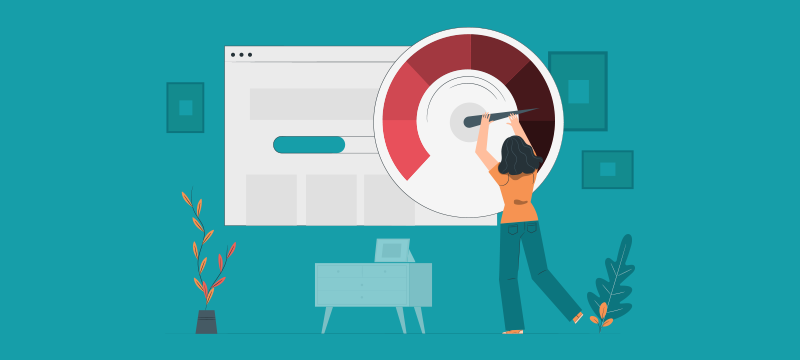We all know how we react to a slow website. We most likely end up exiting the page and switching to another website. As an online business owner, you are well aware of this, because at some point you may have reacted the same way to a slow site. So you are no stranger to the fact that page load time directly impacts conversion rates.
But how precisely? What effect does it have on the bottom line? In this post, we will look at how a website’s speed impacts revenue.
What is website performance?
Page speed relates to how rapidly a browser can load a completely functional and operational webpage from a certain website.
Google page speed insights explain this in a simple 3-fold mechanism; how soon the major content of your site loads, how quickly it settles into a fixed place when it loads, and how swiftly visitors can interact with your page, such as scrolling up and down, clicking a button or moving to another page.
What effects page load time – a general overview?
Multiple factors can have an impact on page speed. The speed of the user’s connection, the sort of instrument they are using, and also their physical distance from your server might slow the performance. However, these factors will not impact the user’s assumption that the website will load rapidly.
And regarding the website, speed can be influenced by the number of plugins you use, the dimensions and measurements of the pictures you choose, the sort of theme you select, and the type of content and material you use for each page.
What effect does page load time have on your revenue?
Conversion rates will decrease for every second your website takes to load. If conversion amounts to the sale for your company then the slower the site loads, the lower the revenue. The reason behind this is that in today’s fast-paced, digital environment, people are just not willing to wait for a page to load or respond.
Another reason that page speed affects sales is its impact on SEO rankings. If a website is functioning not up to par, then such sites will be lower in rank. As a result, receiving less organic traffic amounts to lesser sales.
Desktop or mobile speed?
If you have to select between focusing on page performance for desktop visitors and mobile users, then always prioritize mobile. Because mobile devices account for more than half of the entire web traffic, the speed with which your site loads on these devices has become increasingly crucial.
A page that functions fine for PC or laptop users may be incredibly slow for mobile handlers due to a slow connection. However, when a page loads quickly for a mobile user, desktop users naturally have a greater experience, (unless you intentionally insert things specifically for desktop users and these reduce the load speed).
How to reduce load time and increase speed?
To begin improving anything, one must first understand where they are. If not, you will never know if these improvements are making things better or worse. So the first thing to check is how fast your consumer-focused page loads.
The next stage is to begin to enhance speed. There are several methods for enhancing site speed that, when combined, can have a significant impact. To begin, remove any unrequired add-ons or plugins, as they may bring down the operation of your server and may necessitate the transmission of additional data to the user’s browser.
An additional approach is to use compression, which reduces the amount of data your website delivers to browsers. Also, you can enable caching, which stores static components of the website on the user’s web directory for faster loading the next time they access your site.
And employ CDN (Content Delivery Network), which caches static components on servers geographically nearby to the user’s location. You can also speed up your site by lowering the size and dimensions of the photos and videos and removing unneeded elements.
The significance of web hosting
The speed of your website is directly linked to the quality of web hosting. Using servers with the latest processors can significantly improve loading speed. Meanwhile, switching from shared to VPS hosting protects your website’s performance from other users on the server and provides you with substantially more processing power and storage to attain the speed required to enhance revenue.
Conclusion
To conclude, speed does matter. You’ve seen how page load times directly impact conversion rates and understand that every second counts when it comes to your company’s bottom line.
Websites must load for both search engines and online shoppers. If they do not, consumers will switch to another site, and SEO rankings will suffer. Due to this, the number of visitors and sales generated by the website may begin to decline.
As a result, fast web performance is critical for increasing income. This means applying the necessary procedures that have been described above and increasing the quality of web hosting.
For fast web hosting solutions, visit bodhost.com
